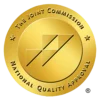Drinking alcohol comes with several short-term and long-term effects, some good and some bad. For many, alcohol may be something to help them unwind and relax at the end of a long day or something that offers a social connection, for others alcohol is a vice that can be harmful, dangerous, or even deadly.
For those who drink alcohol either heavily, regularly, or just generally have an unhealthy relationship with the substance, drinking alcohol excessively can cause major physical, mental, and psychological issues. One of those potential issues is something called alcoholic hallucinosis.
What exactly is alcoholic hallucinosis? In this blog, we will not only answer that question, but will also look at how they come about, the risks that come along with them, and how you or a loved one can get treatment for alcoholic hallucinations or any other alcohol condition.
Alcohol hallucinations are one of the psychological effects that happen if you drink an excessive amount in a short period (aka binge drink), or if you are someone with a history of chronic hallucinations. Hallucinations are one of the side effects listed along with impaired judgment, slurred speech, and lack of coordination as it relates to heavy or prologues drinking.
What Are Alcohol Hallucinations?
As the name implies, alcohol hallucinations are often caused by heavy drinking, although they can also take place during alcohol withdrawal. They are often frightening and disorienting for the person experiencing them and can cause the person to act on what they think they are seeing, sometimes in a dangerous manner.
While alcohol is auditory, it is not uncommon to be visual in well. In some cases, tactile hallucinations (sensation of things crawling on the skin or being touched when no one is present) can also occur.
One area where alcohol hallucinations differ from other types of hallucinations is that, unlike hallucinations caused by hallucinogenic drugs or psychiatric disorders, alcohol hallucinations are the direct response to either the effects of alcohol toxicity on the brain and nervous system or the brain’s response to alcohol withdrawal.
Signs and Symptoms of Alcoholic Hallucinosis
As we mentioned earlier, auditory hallucinations are by far the most common type of hallucinations experienced in alcoholic hallucinosis. As part of these auditory hallucinations, you may hear voices that aren’t actually present. These voices can be familiar or unfamiliar and may even be threatening or disorienting.
Some people have admitted to experiencing visual hallucinations as a result of drinking. These hallucinations can range up to elaborate and complex hallucinations such as seeing objects or people that aren’t real.
Tactile hallucinations occur when someone experiences the sensation of movement that isn’t actually happening. An example of this is feeling as though a bug is crawling on your skin even though there is no bug.
Someone experiencing an alcoholic hallucination may also exhibit confusion, disorientation, and difficulty distinguishing between what’s real and what’s not. This is particularly common during alcohol withdrawal.
For many, experiencing an alcoholic hallucination can come with feelings of anxiety, fear, and paranoia. They may become worried about their safety or believe that others are trying to harm them, even when there is no threat.
The hallucinations may also result in mood swings including feelings of depression, agitation, or elation.

If you or someone you know has experienced any of these side effects or symptoms as a result of drinking, it may indicate a larger issue, such as alcohol abuse or addiction. Even if there are no concerns of abuse or addiction, experiencing these symptoms as a result of drinking is enough to seek professional help or medical attention.
Risk Factors for Alcohol Hallucinosis
Some of the other risk factors that can increase a person’s risk of developing alcoholic hallucinosis include:
- A history of mental health disorders – People with a history of mental health conditions, such as anxiety, depression, or psychosis, may be more likely to experience alcohol hallucinations. These conditions can exacerbate the psychological effects of alcohol.
- Genetic predisposition – A family history of alcohol use disorder or mental health conditions may increase the risk of alcohol-related hallucinations.
- Liver disease – Chronic alcohol use can lead to liver damage, which can affect the body’s ability to process alcohol and other toxins. This can lead to an increased risk of hallucinations and other neurological symptoms.
- Alcohol withdrawal – Hallucinations are a fairly common side-effect of alcohol withdrawal. When the brain suddenly adjusts to the absence of alcohol, it can result in altered perceptions and sensory experiences.
Alcohol Hallucinosis vs. Alcohol Psychosis
While alcoholic hallucinosis primarily involves the perception of things that are not present, such as hearing voices or seeing things that aren’t real, alcohol psychosis doesn’t just involve hallucinations but delusions as well.
People with alcohol psychosis may experience paranoia, grandiosity, or other distortions of reality that lead to dangerous behavior. Additionally, alcohol psychosis typically occurs after years of heavy drinking and can persist even after the individual stops drinking, often requiring long-term psychiatric treatment.
By far the biggest difference between the two conditions though is the length in which each lasts. While alcoholic hallucinosis can be a temporary condition that can be eliminated with treatment, alcohol psychosis is a more complex disorder that may require ongoing care and intervention.
Alcohol Hallucinosis vs Delirium Tremens (DTs)
 Another instance where alcohol hallucinosis can overlap with a separate severe condition is delirium tremens (DTs). DTs are a medical emergency and involve more severe physical symptoms, including tremors, seizures, high blood pressure, rapid heart rate, and confusion, as well as hallucinations.
Another instance where alcohol hallucinosis can overlap with a separate severe condition is delirium tremens (DTs). DTs are a medical emergency and involve more severe physical symptoms, including tremors, seizures, high blood pressure, rapid heart rate, and confusion, as well as hallucinations.
While both are considered serious and require medical attention, when left untreated DTs can be significantly more dangerous and life-threatening.
Diagnosis and Treatment of Alcoholic Hallucinosis
Detox is the first step of any kind of substance use disorder and is done in order to rid the body of the substances that are in it so that the healing process can begin. As you have read by now, the symptoms associated with alcohol withdrawal aren’t just uncomfortable but when not properly addressed they can even be dangerous or deadly.
That’s why it is crucial that detoxing be done under the care and supervision of trained medical professionals. Detoxing from alcohol will often require the administering of medications to help treat the withdrawal symptoms as well as cut down on cravings.
From there both psychiatric and medical care can begin. This often includes a combination of therapy services, medication, and support group meetings, all designed to help the person in treatment cope with the emotional and psychological impact of the hallucinations.
In severe cases, antipsychotic medications may be prescribed to manage hallucinations and other symptoms of alcohol-induced psychosis.
Can Alcoholic Hallucinosis Be Prevented?
For those currently going through alcohol withdrawals, doing so under the care and supervision of medical professionals can also greatly reduce the risk of the development of hallucinations.

 Another instance where alcohol hallucinosis can overlap with a separate severe condition is
Another instance where alcohol hallucinosis can overlap with a separate severe condition is 


